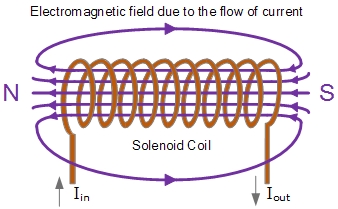Home › Electrical Engineering Forum › General Discussion › Magnetic Circuit Breakers
- This topic has 0 replies, 1 voice, and was last updated 11 years, 1 month ago by
admin.
-
AuthorPosts
-
2014/01/22 at 9:18 am #11126
admin
KeymasterNew part of the tutorial on Circuit Breakers, provided by one of the members of the community. Don’t forget to give your impressions or to ask questions.
Another type of voltage breakers that are commonly used nowadays are the magnetic circuit breakers. They are also used for protecting the electrical equipment in case the circuit suffers any problem and an excessively large amount of current flows through it which is dangerous for the circuitry ahead.
Loose connections or contacts, wrong wiring or a heavy load attached to the circuit can cause such problems and as a result of all these, a current overflow occurs in the path.
So far we have known a lot many types of the circuit breaker and even studied a couple of them in detail.
So the basic knowledge of the working of a typical breaker must be clear now, along with its advantages over other circuit breaking devices like a fuse etc.The best one being that it does not need any replacement or a time delay after each switching, as it neither heats up nor suffers any kind of damage in usual conditions.
Working of a Magnetic Circuit Breaker
Coming to the working principle of magnetic circuit breakers, we first see that what is different about them that outstands them from the other breakers.
So the difference lies in the actuating signal. The actuating signal is the signal which actuates or stimulates the contacts of the breaker, giving them the notion to maintain or break their contacts depending on the value of the current flowing through the circuit. So in case of a magnetic circuit breaker, a solenoid or an electromagnet is attached to the trip unit.
The function of the solenoid or the trip unit is to generate a magnetic field. This is done when the current passes through the solenoid, magnetism develops in it due to changing magnetic flux, and a magnetic field is created around the solenoid.
As the strength of this magnetic field is directly proportional to the amount of current applied, so when the current through the circuit increases, the magnetic field around the solenoid or the electromagnet also becomes strong.
In case an excessively large amount of current is trying to pass due to some fault occurring in the circuit, the magnetic field becomes so strong that it pulls the bimetallic contact strip so that the contact breaks and the circuit opens and no current can pass any further.
When the original amount of the current is stored, i.e. the current is in the safe limits now the magnetic field also weakens a bit. This weak magnetic field does not have enough strength to keep the contact open or pulled towards itself, and hence the contact is restored and immediately the current starts passing through the circuit as before. In this way the circuit breaker operates.
This thing is shown in the figure below:
This was all about magnetic circuit breakers. Thermal magnetic circuit breakers are also available, whose construction and working are somewhat a bit similar to these.
In my next article I am going to explain the thermal magnetic circuit breakers, their working and other specifications. So keep visiting us for more information on electrical stuff.
Nasir.
-
AuthorPosts
- You must be logged in to reply to this topic.

